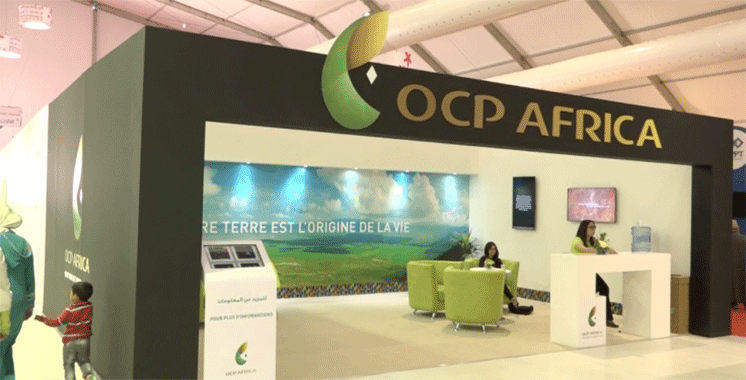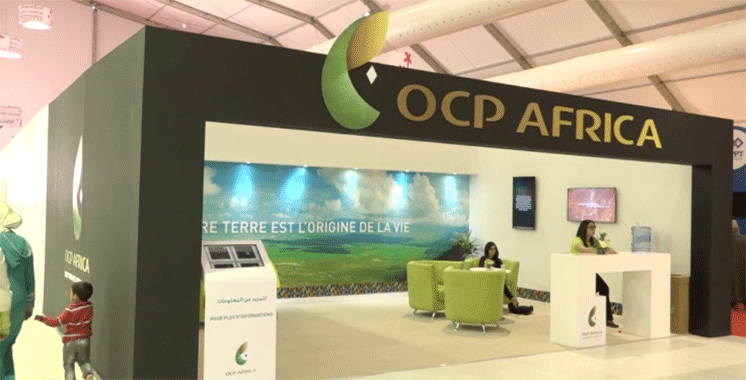

The group develops customized solutions for a sustainable future for African agriculture
African agriculture is a critical component of a sustainable future. The world leader in its field, OCP Group works to help farmers on the continent increase their yields through more sustainable methods. Africa has 60% of the world’s arable land. Otherwise, global food security is at stake in Africa. “We created OCP Africa to embody our vision for a sustainable future for the continent, giving farmers the resources and technology they need. OCP Africa works to advance sustainable agriculture across the continent, helping to meet the immediate needs of farmers and advance their knowledge through research, education and partnerships,” we learn from the group.
“We develop customized fertilizer solutions, which adapt to local environments and crop needs. Through OCP Africa’s partnerships and initiatives, we also provide farmers with the agricultural services, knowledge and innovative resources they need to thrive. Building on the long experience of the Moroccan OCP Group in the processing and production of phosphate and its derivatives, we have been Establishment of OCP Africa in 2016 to contribute to the sustainable development of African agriculture.
We offer solutions that adapt to local conditions and the needs of different cultures. It also works in partnership with a network of partners – governments, non-profit organizations and corporations – through which all the resources needed for farmers’ success are made available. It is about understanding the complex needs of the African soil and allowing access to the right products at the right time in the right place and at the right price. Present in 18 countries through 12 subsidiaries and 17 different nationalities, OCP Africa presents as a multicultural African company working alongside farmers and partners across the continent. Concretely, many projects have been developed for the benefit of African farmers. In partnership with the International Center for Research in Agroforestry and the Consultative Group on International Agricultural Research, OCP Africa’s OCP School Lab travels to remote areas to meet farmers, provides free soil testing, and then makes recommendations for fertilizer use that meet farmers’ soil and crop needs.
At least 350,000 farmers have benefited from the school’s laboratory in Kenya, Nigeria, Ghana, Togo, Burkina Faso, Senegal and Côte d’Ivoire. There is also talk of the Agribooster. This is a unique food crop initiative that provides farmers with support in all aspects of the agricultural value chain. Through the Agribooster, OCP Africa connects farmers with financing and insurance, working with local extension agents to train them in the appropriate use of fertilizer, and working with stakeholders to ensure they have the right fertilizer and other inputs. 140,000 small-scale producers are participating in the project in Nigeria, Ghana and Kenya.
Today, 70% of the population of sub-Saharan Africa subsists on agriculture. We believe that, to feed a growing global population, it is necessary to provide farmers with the tools to produce adequate food. We understand the complex needs of the African soil and enable access to the right products, at the right time, in the right place and at the right price, says OCP Africa. The latter operates over the entire value chain, based on several pillars. “Today, fertilizer use in Africa is much lower than it should be – the average amount of fertilizer used in sub-Saharan Africa is only 16 kg/ha, compared to the global average of 138 kg/ha. The rational use of fertilizers is the only way to increase Largely yields per hectare thus limiting the expansion of agricultural land at the expense of already depleted forests.When used properly, compost helps to maximize short-term land use and long-term conservation.
Conclusion: “We are conducting field pilot programs in Africa to address agricultural production issues that limit increased and sustainable yields and incomes for smallholders, mainly caused by low inputs (including fertilizers), inappropriate fertilizer use and poor crop management. These field trials were designed and implement them to determine the best inputs that can be provided to smallholder farmers based on their country, crops and agro-ecological specificities.”





More Stories
F-16 crashes in Ukraine – pilot dies due to his own error
Namibia plans to kill more than 700 wild animals to feed starving population
Endurance test for EU-Turkey relations and Ankara with Greece and Cyprus